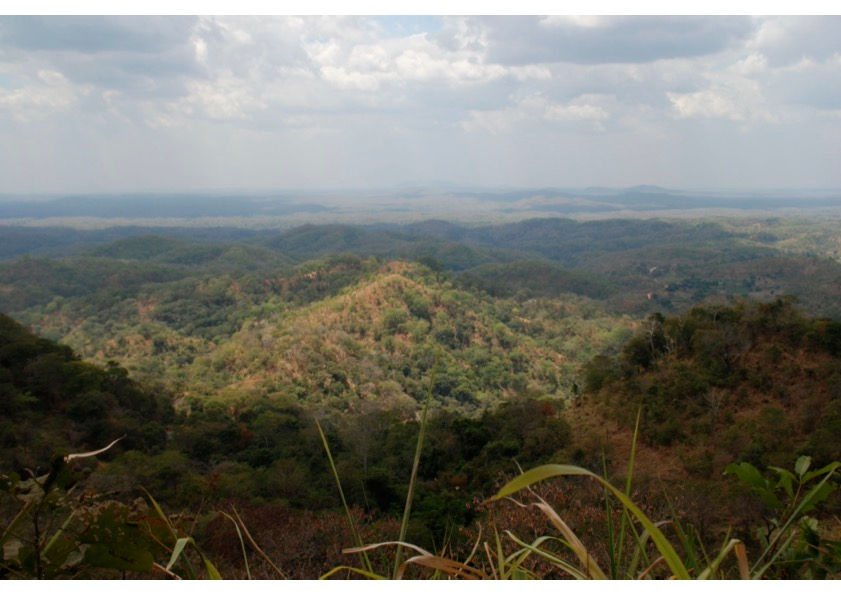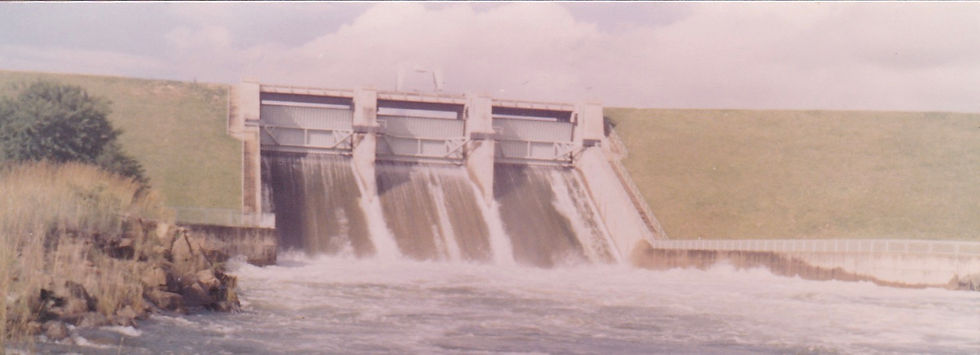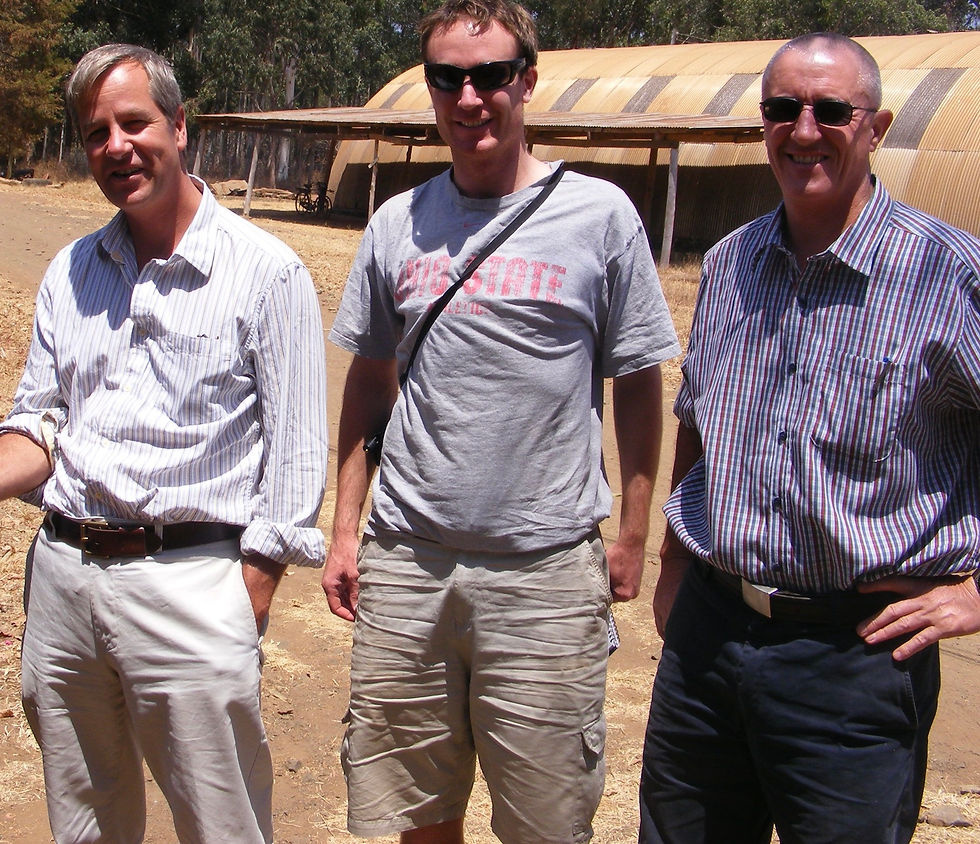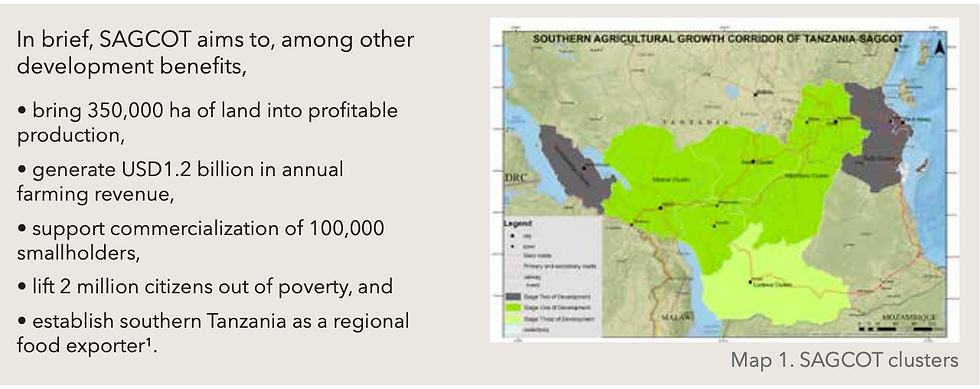
This week we bade a sad farewell to our very good friend and neighbour Patrick Holt. Of our neighbours, Patrick was the first we met, meeting before we even decided on where we would purchase our planned retirement home in Portugal. I remember the day well as our house hunting guide, a young Portuguese lady born in Bulawayo, no doubt frustrated with our critique of her showings, had a brainwave after listening more closely to Rozanne. “I think we have the place for you,” she said. The house in question, still not advertised, had just come on the market. The owner was away. No problem, one of his British neighbours had the key. So off we trekked to the village of Besterio to the so-called neighbour's house where after knocking on the stranger's door, a man with a slight Irish lilt appeared. At first sight, due both to his height and unruly mop of curly hair, he seemed somewhat intimidating. His soft voice soon belied our visual appraisal. Little did we know he and his wife Liz would be our first and lasting true friends in our new home in Central Portugal.
"True friends are social companions in times of relaxation and supportive in times of need." - Peter McSporran
That visit resulted in us putting an offer forward for the house that day, as it happened, we only planned to move to Portugal in a couple of years. Once moving to Besterio, Patrick and Liz were always our ‘go-to’ people, not just for advice and help if required but also for a drink or a meal. We were to learn Patrick had an acidic (sharp) sense of humour coupled with a caustic tongue that were a thin facade camouflaging a generous and sensitive man willing to help a friend or stranger alike when required without ever seeking any reward or even recognition for his efforts. Rather than criticise immediately another's actions he would offer empathy. He saw his own compassion for others as being a positive trait which I cannot argue with.

Despite this, Patrick liked to challenge the status quo, no matter what, he would be the one to offer alternates in thought and argument in discussions at our weekly ‘Old Farts’ drinks. Our ‘Old Farts’ drink meets used to be called the ‘Tuesday Group’ but as Patrick’s weekly blood transfusions were on a Wednesday, we moved the meets to Thursday as he was, in his own words, ‘much more energetic following a blood top up’. Despite this, it is still called the Tuesday Group. In regard to any view voiced within the group, he on principle would oppose rather than offer empathy or support to the presenter for the sake of good-natured argument. Some may have thought this as being contrary. Not Patrick, he wanted to test every theory, proven or unproven. For the sake of argument, logic could be sacrificed. I never saw him upset, but then, I missed the discussions around BREXIT, which split the group, for and against. Patrick being a staunch remainer, unashamedly so, was more than happy to remind everyone of this. Unlike some of those that voted to leave the EU and have subsequently returned to the UK, Patrick and Liz had adopted their new country as their permanent home. He and Liz have resided for some 20 years here in Besterio being favourites of all their Portuguese neighbours and ex-pats alike. Perhaps having been brought up in a divided country, Northern Ireland, reinforced this need for unity and good neighbourliness. He openly ridiculed any voters who resided in Portugal that had voted for Britain to leave. Not enough to destroy friendship.
“Friends should not constantly agree with you, friends should also feel comfortable in challenging your views and actions.” - Peter McSporran
As far as he was concerned Portugal was his home. He never discussed moving back to the UK. In doing so, he was given excellent medical care by his adopted country right up to his passing.
Patrick was born in England but raised in Northern Ireland where he grew up during the troubles. Liz is English, from Cornwell, so one a Celt by birth the other a Celt by choice. Patrick enjoyed his adopted identity and had been a very useful rugby player in his day, he was also a stalwart Irish rugby supporter. Only a couple of weeks ago I saw tears in his eyes when the final whistle blew and the Irish had won their first ever away series against New Zealand. Ooh how we enjoyed watching rugby together, all the better if we supported opposing teams.
Patrick was not a materialistic person, he had a comfortable home and lived a comfortable life enjoying his adega (wine cellar) which doubled as his den oblique workshop. His hobbies being winemaking, woodwork and music. He recently hand-made some special speakers. Liz and Patrick often enjoyed their music over a whiskey (whiskey with an e being Irish) into the wee hours on their verandah overlooking the Rabaçal Valley. We knew the end was near when he parted with his one indulgence of monetary value, his classic Alfa Romeo Spider.
Patrick had known of his impending death for a number of years having been diagnosed with incurable blood cancer. His deteriorating health meant more recently weekly visits to the University Hospital, endless hours waiting following blood tests before transfusions could be administered. Stressful to both him and Liz. Much of the time Liz was denied entry due to Covid-19. Throughout his illness and failing health Patrick psychologically accepted this challenge by stoically continuing to adhere as near as possible to his normal life. Patrick was proud of his children, all who had recently visited him. Their and Liz’s love and respect made him a happy man in life, a legacy all men should aspire to achieve.
When my father-in-law passed away in our garage as he and Rozanne were about to leave for Sally Sandeman’s memorial, Patrick was the first on the scene to assist Rozanne as I was on a plane returning from London. What a comfort both he and Liz were to Rozanne at that time, I do hope we offer the same to Liz. Goodbye Patrick, my friend and verbal combatant.
John and Clem
With Patrick’s passing, it reminded me of my immediate neighbours when we first went farming back in Darwendale. In the 1970s with the war in Rhodesia at its height, there were many vacant farms, therefore new blood was always welcomed with open arms into the farming districts. Clem Bruk-Jackson and John Gordon were my closest neighbours. Clem was about two and a half kilometres away by road and John about seven kilometres. Close by Rhodesian farming standards, far by European. On the ranches in the south of Rhodesia, some had their closest neighbours fifty kilometres or more away. Clem was closer to my father’s age while John was in between that of mine and my father, both were treated by me as my elders. John’s retired father Trevor, a keen naturist, was the patriarch of the area with Clem looked at as heir-apparent to that role. Both Clem and John quickly took me into their care offering advice on every aspect of my tobacco growing while happy to learn from me on how to grow groundnuts, that is peanuts to those non-farmer readers. Their wives, Jean Bruk-Jackson and Sheila Gordon, became good mentors and friends to my wife Diane. Both these families already had children at school, not shy about chiding Diane about the need for children.

John and Clem could not have been more different in design, both in nature and physical shape. Clem was short, slightly heavy with a permanent smile on his face. That was unless he heard someone swear in front of a woman. This was when you could see him at his most angry openly reprimanding the culprit. You never come across this nowadays, everyone swears. Clem was conservative while still open to new ideas until completely convinced it was a good plan, while John would be a lead, happy in implementing new unproven ideas and systems into his farming practices. Mind you one year Clem went completely the other way and tried to grow groundnuts in winter, a failure which convinced him to return to his conservative ways. One of the crusades John took on was the promotion of bulk curing tobacco, being one of the early advocates for this system eventually buying into a manufacturer of these. John's hobbies were sailing, clay pigeon shooting, fishing and in later years, flying and wildlife. As his arable flat land was limited, he convinced Clem to put the airstrip and hangar on his farm, that's how close our relationship as neighbours were. John also diversified out of farming into other businesses including property, agricultural buying services and wildlife on his farm, bringing animals from as far afield as Zambia. There was nothing nicer than having a beer as we drove around his game park. For us, great to have wildlife so close.
Clem enjoyed fishing, and strangely for a farmer, lapidary as his favourite pastime in the evenings or weekends. If Clem was missing he could always find him inhabiting a small hut in the garden where he kept his gem polishing equipment, that is if his boat was still in the yard. Clem also kept bees and boasted he was immune to their sting claiming to have been stung thousands of times. That was until one day while John and he were collecting honey a single bee sting rendered him unconscious with serious heart palpitations. Seemingly you can accumulate an allergy to bee stings, that was the end of Clem’s beekeeping.
None of us had money. Clem drove an old Citroen DS, his pride and joy, while John, an old Renault 12. Clem and I had Nissan 1500 pickups with bench seats supported by a bar that destroyed our backsides while John had an old Landrover that started on petrol and changed to paraffin. We all had motorbikes to reduce fuel consumption on the farm as we had petrol rationing during the 70s in Rhodesia. Clem and I had 125cc Honda’s, while John, an old noisy Matchless motorbike. I think it was 500cc. It was heavy, it could kick like a mule when starting, running with a thudding sound rather than a rhythm.
One of the funniest stories around that time is when John attended a security meeting in Darwendale during the rains. Despite us all instructed to be home after dark, we all socialised in our area throughout the war into the night. John decided to have a few beers as there was a thunderstorm. A few beers developed into a late wet night which unbeknown to him set the rivers in flood. On trying to return home, he found the then low-level bridge across the Gwebi River underwater. The beer convinced him the alternative would be to drive the Matchless across the railway bridge thinking as long as he kept going, the bike would happily straddle the gap between the sleepers, being much closer together across the bridge. All was well and good until at some stage he stalled and was unable to balance properly to start it on the railway track, having then to drag the bike across by hand, each sleeper a challenge. The alternative was to drop it into the river. In no time due to the influence of alcohol, his mind went into Tam O’Shanter mode and he imagined he thought he could hear a train coming which only intensified his frantic efforts as he truly loved that cumbersome bike. Exhausted, he finally made it across with no train in sight. This story kept us amused for years.
As neighbours, we shared advice, equipment and a social life. Once the Darwendale dam was full for relaxation, when not on call-up or security duty, in the evenings we would regularly go fishing, each of us with old second-hand boats. As I was near the middle of the dam, more often than not we would launch my old Impala fishing boat, small but weighing a tonne, with its 50 HP Redline pull start Mercury outboard motor, to go fishing for Rendalli Tilapia (Red Breasted Bream). To save time I would send a tractor with a driver to take the boat down in advance and later retrieve it. The driver, if lucky, would be rewarded with fish. Clem was the first to realise due to the dam flooding that the swarms of ants trying to escape the flood waters had become a favourite meal for the fish. Floating flying ants soon became our favoured bait. Our fridges quickly became full of ants in anticipation of future fishing trips to the disgust of our wives.
When the war ended we, as did most of our neighbours, decided to remain in the new Zimbabwe. Unfortunately, a year after independence, 1981, Clem, still in his fifties died of a heart attack and ten years later John was killed in a vehicle accident, both too young and like Patrick leaving a huge void in my life.
Mbeya

Following Njombe we set off to Mbeya through and over the mountains. On the plateau of these mountains, we drove through areas where summer wheat was traditionally grown going back to the German colonial days. Yields had been reducing I presume due to over-cultivation and lack of nutrients as people boasted they could get viable yields without fertiliser. I hear the same from some younger farmers nowadays, when substantially reducing their chemical fertilisers and relying on rotations, including legumes for nitrogen. Unfortunately, the rotation will not supply all the nutrients, especially micronutrients and with each crop, yields will eventually drop back to where we all started; the need for fertiliser. Of course, potash and phosphate are natural minerals, unfortunately, some of the chemicals found in processing them can be toxic if accumulated over time, while nitrogen, if overused, is a source of nitrous oxide, an identified contributor gas to climate change. As an aside, after last week's blog, I read the EU does not monitor methane leakage in the energy industry while every cow breath is. All of which could be captured at no cost to use as fuel.
In the German colonial days of Tanganyika, there were large flocks of sheep in the mountains, now remaining a limited few along with some dairy cows, probably from the old dairy and pasture research station up there. Unfortunately, I can find no record of it. I was amazed to see beautiful swathes of ryegrass still surviving without any attention for years. How wise were these old colonials, as we all know high yielding dairy cows are not comfortable in warm climates, for them to locate their dairy cattle and European breeds of sheep up there at 2,500 metres above sea level. It is always cool with excellent rains for pasture. Naturally, the roads were nigh impassable on our trip.

Dropping down out the hills we once again joined the main Iringa-Mbeya road stopping at a new dam being built out of stone. To my amazement, a free-standing wall without any spillway to help retain annual runoff, servicing the many rice paddy fields to the north, including Kapunga which I visited with Han at a later date. From there to Mbeya, a thriving agricultural-based town benefiting from trade with Zambia, DRC and Malawi. In this area, the smallholders had been introduced to growing potatoes and dairy. Certainly, as is often the case, the introduction of a crop or livestock industry does not mean success without access to market or processing if required along with logistical infrastructure all of which were lacking. While here we visited a greenfield avocado project being run by Rob Clowes, unfortunately, due to partnership fallouts, despite receiving funding, this project floundered.
"Poor partner relationships can destroy a viable company just as quickly, if not quicker, than poor margins or market collapse." - Peter McSporran

Throughout the trip, I would receive calls from politicos with vested interests. Rarely an hour went by without some call informing us how important their business or harebrained scheme would be for the success of SAGCOT for which I was one of the original scoping team. As far as I know, while still moving forward, its progress has been slowed down to a snail's pace by political vested interest and donor competition on roles.
As I have previously stated the Southern Highlands of Tanzania are a huge agricultural resource still to be exploited. Someday Africa will become the gem it should be.

Disclaimer: Copyright Peter McSporran. The content in this blog represents my personal views and does not reflect corporate entities.
ความคิดเห็น